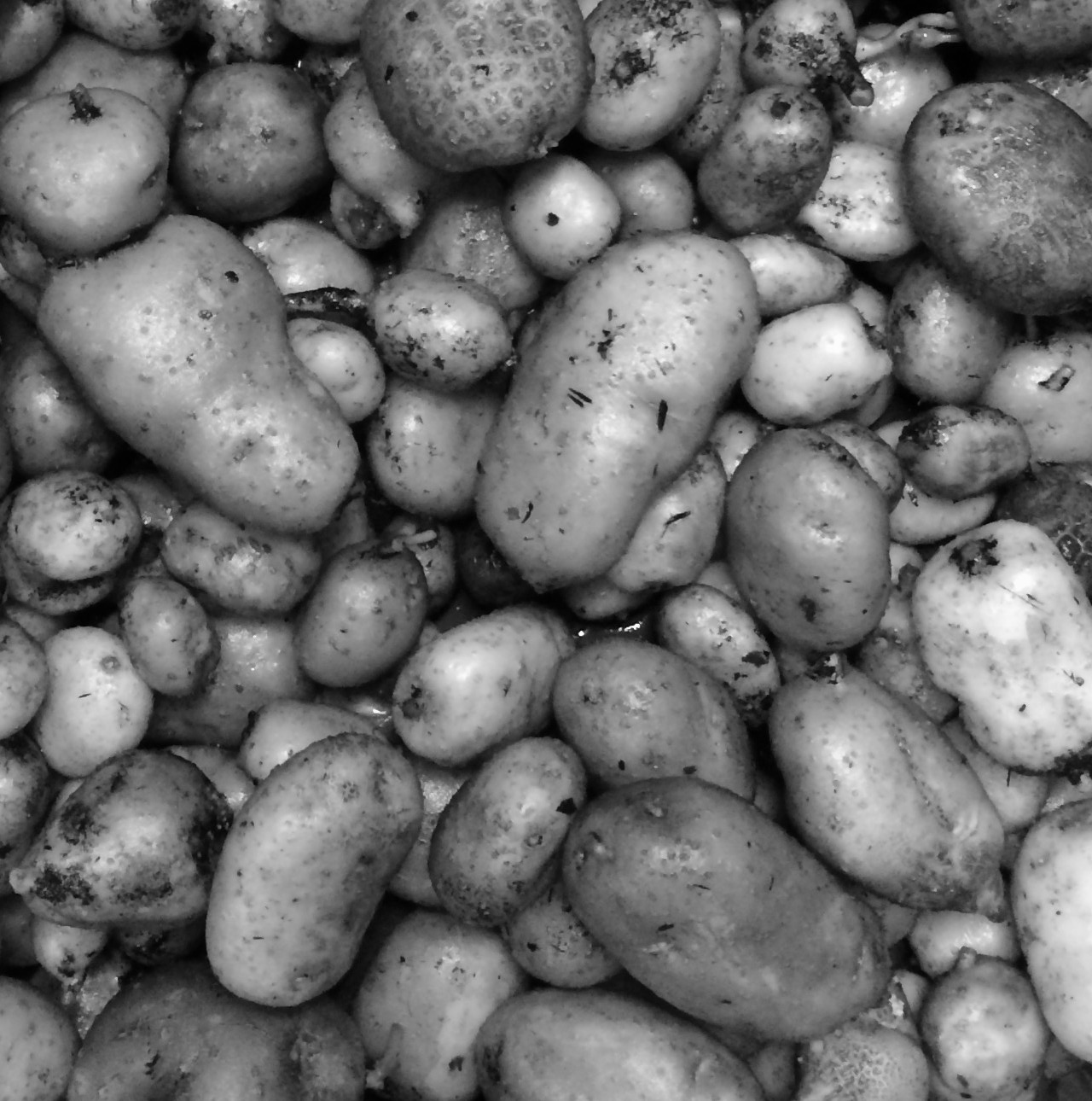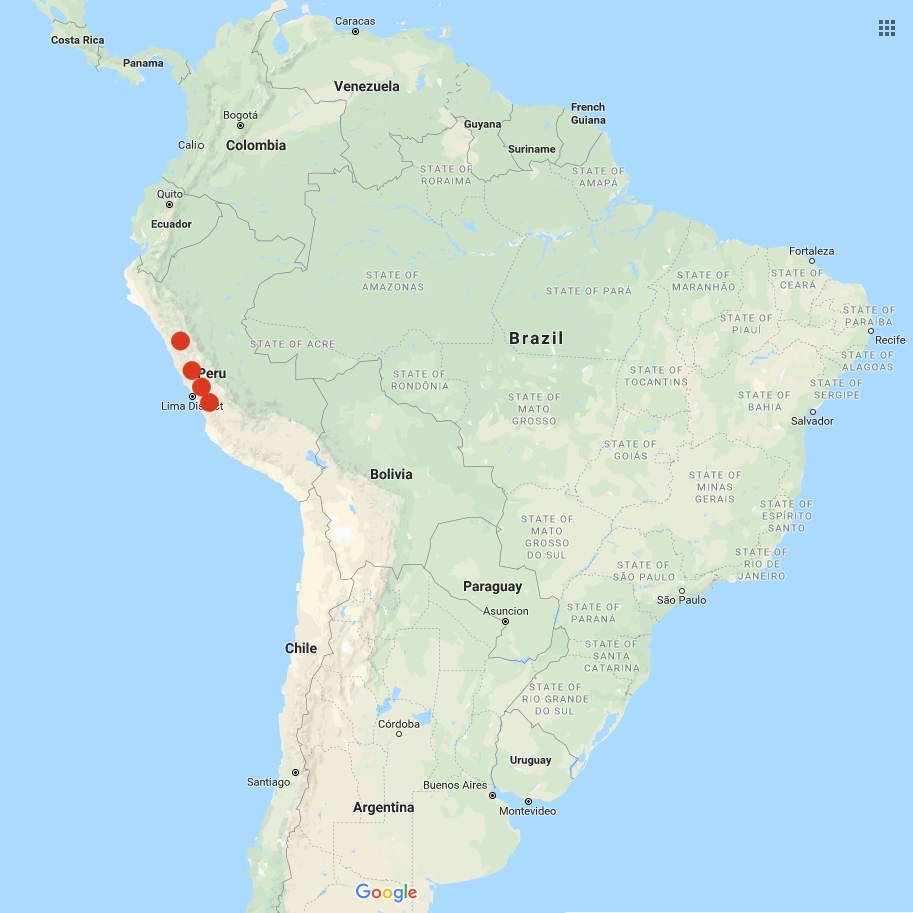Solanum multiinterruptum

| Common Names | |
| Code | mtp |
| Synonyms | S. chrysoflorum, S. moniliforme |
| Clade | 4 |
| Series | Tuberosa |
| Ploidy | Diploid (2x), Triploid (3x) |
| EBN | 2 |
| Tuberization Photoperiod | Unknown |
| Self-compatibility | Unknown |
| Nuclear Genome | A |
| Cytoplasmic Genome | M, W |
| Citation | Bitter: Repert. Spec. Nov. Regni Veg. 12: 56. 1913. |
Description

Solanum multiinterruptum is a wild potato species from northern Peru. Plants to about three and a half feet tall. Flowers blue/purple or white. Berries small and ovoid.
The specific epithet, multiinterruptum, means “multiply interrupted,” presumably referring to the large number of small leaflets. While there is no completely standardized pronunciation for scientific names, the most common way to pronounce this species is probably so-LAY-num mul-tee-in-ter-RUP-tum.
Resistances
Vega (1995) found that this species is about as frost tolerant as domesticated potato.
| Condition | Type | Level of Resistance | Source |
|---|---|---|---|
| Globodera pallida (Pale Cyst Nematode) | Invertebrate | Somewhat resistant | Castelli 2003 |
| Globodera pallida (Pale Cyst Nematode) | Invertebrate | Not resistant | Bachmann-Pfabe 2019 |
| Globodera rostochiensis (Potato Cyst/Golden Nematode) | Invertebrate | Not resistant | Castelli 2003 |
| Myzus persicae (Green Peach Aphid) | Resistant | Alvarez 2006 | |
| Phytophthora infestans (Late Blight) | Fungus | Somewhat resistant | Gonzales 2002 |
Glykoalkaloid content
Johns (1990) found levels of 50 and 68mg/100g for two accessions tested. The primary glycoalkaloids were solanine and chaconine. They also found a level of 42mg/100g but that accession was later reclassified.
Images
Cultivation
The USDA potato genebank has observed that germination of some accessions of this species is inhibited by GA3 (Bamberg 1999).
Breeding
Crosses with S. tuberosum
| Female | Male | Berry Set | Seed Set | Germination | Ploidy | Source |
| S. tuberosum | S. multiinterruptum | Minimal | Minimal | Jackson (1999) | ||
Crosses with other species
Jackson (1999) found 2-16% 2n pollen for varieties of this species.
| Female | Male | Berry Set | Seed Set | Germination | Ploidy | Source |
